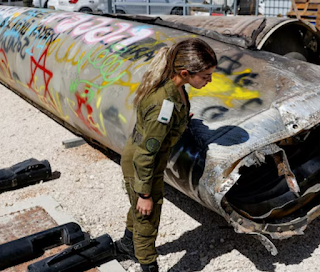Israel has consistently asserted its resolve to respond decisively to the missile barrage launched by Iran on October 1, which was executed in direct retaliation for Israel's extensive military operations in both Gaza and Lebanon. These operations have notably included the strategic elimination of several key leaders from Hamas and Hezbollah. This ongoing cycle of violence and retaliation has significantly heightened tensions throughout the Middle East, leaving the region on edge and increasingly apprehensive about the potential for further escalation of hostilities. The current year has already been characterized by rampant warfare, and the situation remains volatile.
According to reports from U.S. officials, there is a belief that Israel is honing in on specific military and energy infrastructures in Iran as potential targets for its response, as detailed in an NBC report. However, it is important to note that there are currently no indications suggesting that Israel intends to target Iranian nuclear facilities or carry out targeted assassinations in connection with this anticipated response. The specifics of Israel’s military actions remain under careful consideration, with some analysts speculating that a response could coincide with the ongoing Yom Kippur holiday, a time of significant observance in the Jewish calendar.
The conflict with Hezbollah has been progressively escalating since last year when Hezbollah initiated rocket fire directed at northern Israel in the wake of the outbreak of hostilities in Gaza. This particular situation has intensified sharply in recent weeks, with Hezbollah claiming involvement in clashes with Israeli forces attempting to infiltrate the Ramya village situated in southern Lebanon. This claim reflects the deepening complexities of the conflict and the interwoven nature of regional hostilities.
In response to the ongoing threats posed by Hezbollah and its military capabilities, Israel has substantially intensified its military operations in recent days, executing airstrikes on approximately 200 Hezbollah targets. These operations have focused on dismantling terrorist cells, missile launchers, and various infrastructures deemed supportive of Hezbollah's military objectives, as per statements issued by the Israel Defense Forces (IDF). This extensive military escalation has resulted in a significant humanitarian toll, with the Lebanese government reporting that more than 1.2 million people have been displaced from their homes. Furthermore, it is estimated that over 2,100 individuals have lost their lives since the conflict's escalation began, underscoring the severe human cost of the ongoing violence.
U.S. Defense Secretary Lloyd Austin has expressed deep concern regarding recent incidents where Israeli forces reportedly fired upon United Nations peacekeeping positions in Lebanon. He urged Israeli leadership to ensure the safety of UN personnel, reflecting international concerns about the risks faced by those involved in peacekeeping operations in the region. In recent days, there have been reports of injuries sustained by five peacekeepers in three separate incidents, highlighting the precarious nature of the security situation.
The broader conflict in the region has encompassed various Iranian-backed groups, including Hezbollah, the Houthis from Yemen, and armed factions operating within Iraq. The involvement of these groups has raised fears that the ongoing hostilities could potentially draw the United States and Iran into a larger-scale conflict, with unpredictable consequences for the oil-producing nations of the Middle East.
Adding to the complexity, the Islamic Resistance in Iraq has recently claimed responsibility for targeting an Israeli military installation located in the Israeli-occupied Golan Heights. In a statement, they emphasized their commitment to supporting the Palestinian people and the Lebanese resistance, vowing to continue escalating their attacks against Israeli strongholds. This further illustrates the multi-dimensional nature of the conflict and the various factions involved.
The war in Gaza was initially ignited by a Hamas-led assault on October 7, 2023, which resulted in the deaths of approximately 1,200 individuals within Israeli communities and the abduction of around 250 hostages, according to official Israeli reports. In response to this unprecedented attack, Israel launched a comprehensive military campaign aimed at dismantling Hamas's operational capabilities. This military endeavor has reportedly resulted in over 42,000 Palestinian casualties, as stated by Gaza's health ministry, alongside the widespread destruction of infrastructure and housing within the densely populated enclave. The sheer scale of devastation raises pressing humanitarian concerns, with international organizations urging for an immediate ceasefire to address the urgent needs of those affected by the ongoing conflict.



